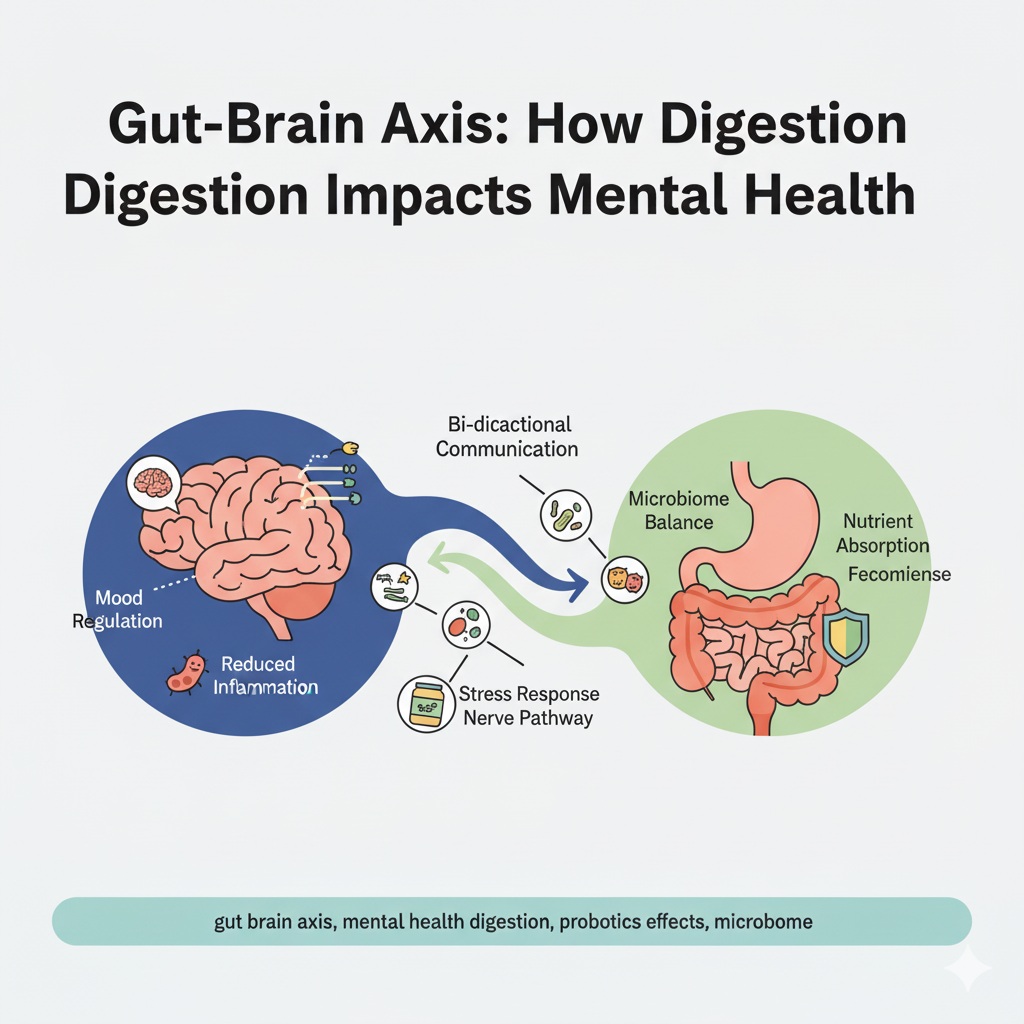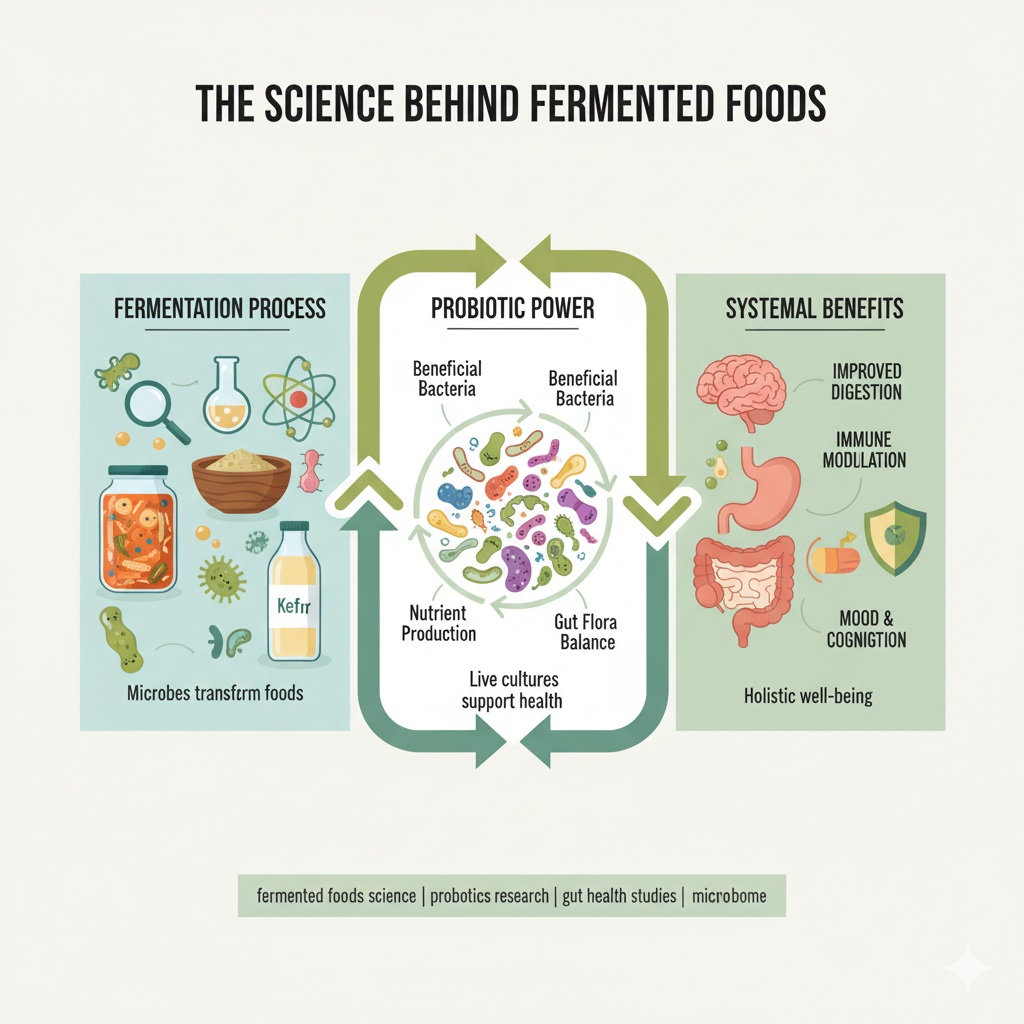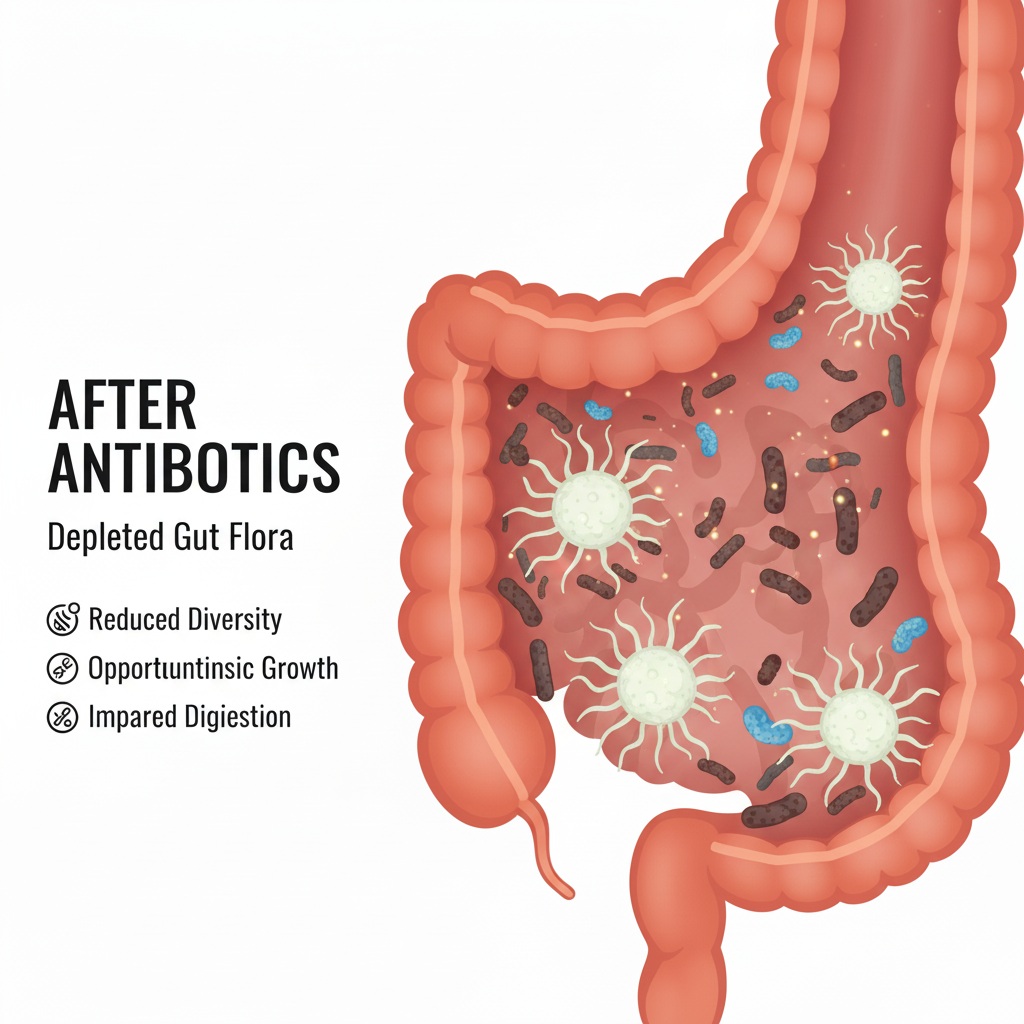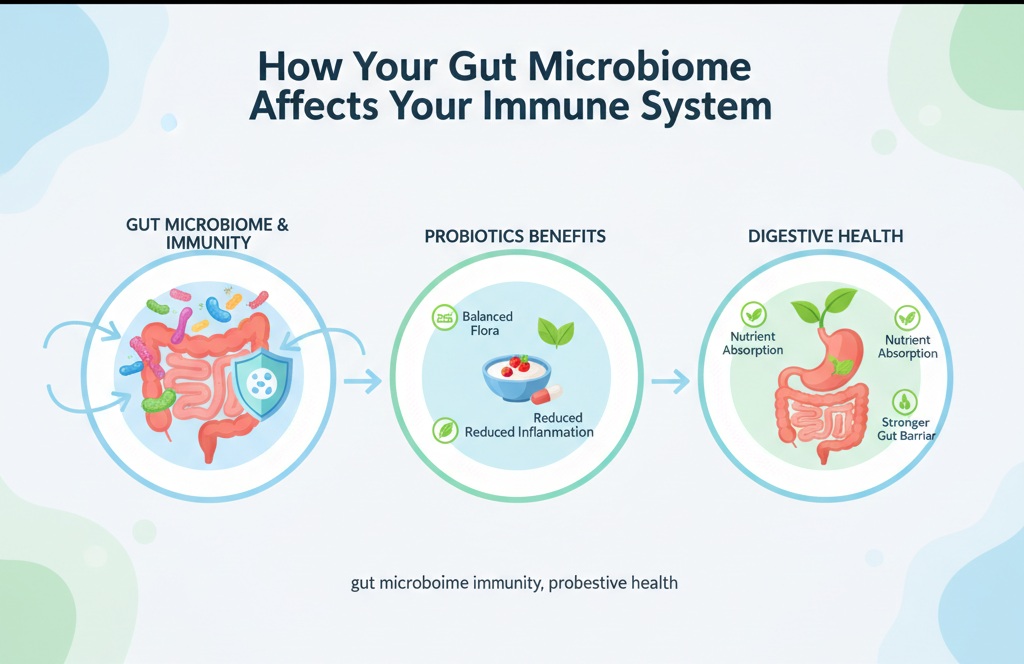New research into the gut-brain axis reveals that digestion directly affects mood, stress, and cognitive function. Scientists have found that gut bacteria communicate with the brain through the vagus nerve and influence neurotransmitters like serotonin. Balanced digestion, probiotics, and high-fiber foods can reduce anxiety and depression symptoms — proving that a healthy gut truly fuels a healthy mind.
Your gut and your brain might seem like two completely different systems — one handling digestion, the other controlling thoughts and emotions. Yet, science has discovered that these two organs are intimately connected through a complex communication network known as the gut-brain axis.
This connection explains why you get “butterflies” when nervous or feel queasy when stressed. But it goes much deeper — your digestive health can profoundly affect your mood, mental clarity, and even risk of anxiety or depression.
Let’s explore how the gut brain axis works, what research says about mental health and digestion, and how probiotics might help support emotional balance from the inside out.
1. What Is the Gut-Brain Axis?
The gut-brain axis refers to the two-way communication system between your gut and brain. This link involves:
- The vagus nerve, a major pathway sending signals between gut and brain.
- The enteric nervous system (ENS) — often called the “second brain.”
- The gut microbiome, the trillions of microorganisms living in your intestines.
These elements work together to regulate digestion, mood, and stress response. In fact, about 90% of serotonin — the “feel-good” neurotransmitter — is produced in the gut, not the brain.
When your gut is balanced and healthy, signals sent to your brain promote calmness, positivity, and clarity. But when it’s inflamed or imbalanced, those signals can shift toward anxiety, fatigue, or even depression.
2. The Science Linking Digestion and Mental Health
For decades, researchers viewed mental health primarily as a brain-centered issue. But new findings have revolutionized that view, revealing that digestion plays a direct role in mood regulation.
Here’s how:
- Gut bacteria produce neurotransmitters such as serotonin, dopamine, and GABA, all vital for emotional stability.
- Inflammation in the gut can send stress signals through the vagus nerve, triggering low mood or irritability.
- Leaky gut syndrome allows toxins to enter the bloodstream, affecting brain chemistry.
- Dietary fiber and prebiotics help regulate the production of short-chain fatty acids (SCFAs), which influence brain health.
Recent studies suggest that people with anxiety or depression often have less diverse gut bacteria, while those who consume more fermented or probiotic foods tend to report better mood and mental resilience.
3. The Microbiome’s Role in Mood Regulation
Your gut microbiome acts as a biochemical factory, creating and balancing key molecules that your brain depends on.
Key Ways Gut Bacteria Affect the Brain:
- Neurotransmitter Production: Certain bacteria synthesize serotonin and dopamine precursors.
- Inflammation Control: A healthy gut reduces systemic inflammation that can impair brain function.
- Hormone Regulation: Gut microbes help modulate cortisol, the main stress hormone.
- Nutrient Absorption: They enhance uptake of nutrients like B vitamins and magnesium, critical for mental energy.
When this microbial balance is disrupted — due to poor diet, antibiotics, or stress — the brain can experience biochemical changes that lead to fatigue, anxiety, or depressive symptoms.
4. Probiotics and Their Effects on Mental Health
One of the most promising findings in probiotics research is their potential role as “psychobiotics” — probiotics that benefit mental health.
How Probiotics Influence the Brain:
- Reduce anxiety and stress: Certain strains like Lactobacillus rhamnosus and Bifidobacterium longum lower stress hormone levels.
- Enhance mood: Probiotics can increase serotonin and GABA signaling, promoting calmness and emotional balance.
- Improve cognitive function: Studies show probiotics may enhance focus and reduce mental fatigue.
- Support sleep: By regulating gut rhythms and melatonin production, probiotics can improve sleep quality.
A 2022 meta-analysis found that participants who took probiotics experienced significant reductions in anxiety and depressive symptoms compared to placebo groups — solid evidence that your gut health truly shapes how you feel.
5. The Gut-Brain Axis and Stress Response
Stress doesn’t just live in your mind — it starts in your gut too. When you’re anxious or overwhelmed, your brain sends distress signals to the digestive tract via the vagus nerve. This can lead to:
- Upset stomach
- Cramping or bloating
- Loss of appetite or emotional eating
- Slower digestion
At the same time, stress hormones like cortisol can change gut bacteria composition, lowering levels of beneficial microbes. It becomes a vicious cycle: poor gut health increases stress sensitivity, and stress worsens gut imbalance.
Breaking this loop means calming both systems — through diet, mindfulness, and probiotic support.
6. Foods That Support the Gut-Brain Connection
Diet plays a powerful role in strengthening the gut-brain axis. Certain foods naturally nourish both your digestive and mental health.
Top Gut-Brain Supporting Foods:
- Fermented foods: Yogurt, kefir, kimchi, and sauerkraut add live probiotics.
- Prebiotic fibers: Bananas, oats, garlic, and onions feed beneficial bacteria.
- Omega-3-rich foods: Salmon, flaxseed, and walnuts support brain membranes.
- Polyphenol sources: Berries, green tea, and dark chocolate reduce inflammation.
- Whole grains and legumes: Support steady energy and gut regularity.
A balanced, fiber-rich diet acts like daily therapy for your gut — and your mind.
7. Lifestyle Habits That Strengthen the Gut-Brain Axis
Beyond food, your habits directly shape the gut-brain relationship.
Proven Lifestyle Tips:
- Sleep well: Poor sleep alters gut bacteria and affects mood regulation.
- Exercise regularly: Physical activity increases beneficial microbes and releases endorphins.
- Manage stress: Meditation, deep breathing, and time outdoors reduce cortisol and balance digestion.
- Limit processed foods: Sugar and additives can trigger gut inflammation and mood swings.
- Stay hydrated: Water supports digestion, nutrient transport, and brain clarity.
These habits reinforce your gut-brain connection, helping both systems communicate more effectively.
8. Emerging Research: The Future of Gut-Brain Science
The field of gut-brain axis research is expanding rapidly, merging neuroscience, microbiology, and nutrition. Scientists are studying how personalized probiotic therapies could help manage conditions like:
- Depression and anxiety disorders
- Autism spectrum conditions
- Chronic stress and insomnia
- Neurodegenerative diseases (like Alzheimer’s)
Early results are promising. As understanding deepens, future treatments may include microbiome-based therapies — where adjusting gut bacteria could be as important as prescribing antidepressants.
9. How to Start Healing Your Gut for Mental Wellness
Improving mental health through digestion starts with small, consistent steps:
- Add one probiotic food daily. Try yogurt or kombucha.
- Increase fiber intake gradually. Aim for 25–30 grams per day.
- Cut down on processed sugar. It feeds harmful bacteria linked to inflammation.
- Prioritize stress management. Yoga, journaling, or slow breathing help regulate the vagus nerve.
- Consider a probiotic supplement. Choose multi-strain options with clinical backing.
Healing your gut won’t happen overnight — but within weeks, many people notice better mood stability, energy, and focus.
Conclusion: Your Gut Feeds Your Mind
The gut-brain axis is proof that your mental health isn’t only in your head — it’s deeply connected to what happens in your gut. From producing mood-boosting chemicals to regulating stress and inflammation, your digestive system is a silent partner in emotional wellness.
By nurturing your microbiome through a balanced diet, probiotics, and mindful living, you can strengthen both your digestion and your mind. After all, a healthy gut truly leads to a happier brain.




